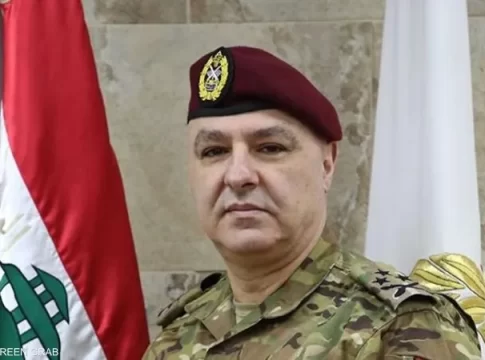Joseph Aoun, a former army commander, assumes the presidency amidst Lebanon’s ongoing economic and political crises. His election comes at a time when the country is grappling with a severe financial downturn, which has seen the Lebanese currency plummet and citizens’ savings decimated. The state electricity company, emblematic of the country’s infrastructural woes, provides only a few hours of power a day, along with an ongoing instability on the southern borders due to Israel’s on and off military activities.
The election process highlighted the challenges inherent in Lebanon’s sectarian power-sharing system. In the initial round of voting, Aoun fell short of the two-thirds majority needed, garnering only 71 votes. However, he triumphed in the subsequent round, showcasing his ability to navigate the country’s intricate political web.
Joseph Aoun, hailing from Al-Aaishiyah, a municipality in the Jezzine District in Southern Lebanon, has had a distinguished military career. Known for his strategic acumen and dedication to national sovereignty, Aoun has been instrumental in counterterrorism efforts and maintaining internal stability. His leadership style emphasizes transparency and international cooperation, qualities that are expected to guide him as he tackles Lebanon’s diverse challenges.
As president, Aoun has pledged to restore state sovereignty, implement crucial institutional reforms, and strengthen international ties. His emphasis on fighting corruption and restructuring the economic sector aligns with international expectations, particularly those of the International Monetary Fund (IMF). Lebanon’s leaders have previously reached a preliminary agreement with the IMF for a bailout package, but significant progress on necessary reforms remains elusive.
Aoun’s presidency comes with the backing of key international players, including Saudi Arabia, the United States, and European nations. This support is seen as pivotal, potentially providing the leverage needed to advance Lebanon’s reform agenda.
Amidst these challenges, Aoun must also navigate Lebanon’s political landscape, characterized by complex alliances and the influential presence of Hezbollah, both a militant group and a formidable political entity. Analysts suggest that while Aoun has maintained a non-conflictual relationship with Hezbollah, his presidency will require careful diplomacy to manage the group’s resilient influence.
Lebanon’s economic crisis, compounded by political instability, presents a formidable challenge for Aoun. Yet, analysts like Slim point to his international backing and commitment to state-building as assets that could bolster his presidency. Aoun’s ability to bring about change will depend on his navigation of domestic politics and his implementation of reforms.
As fireworks and celebrations erupted across Lebanon following his election, particularly in his hometown of Al-Aaishiyah, Joseph Aoun’s presidency begins with both optimism and significant expectations.


